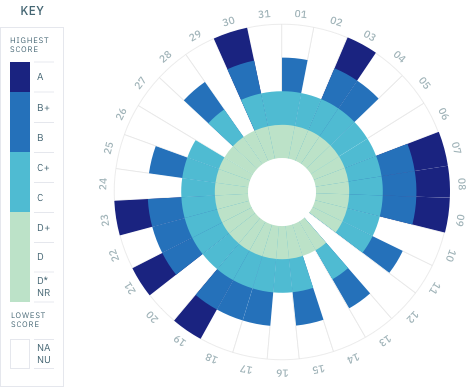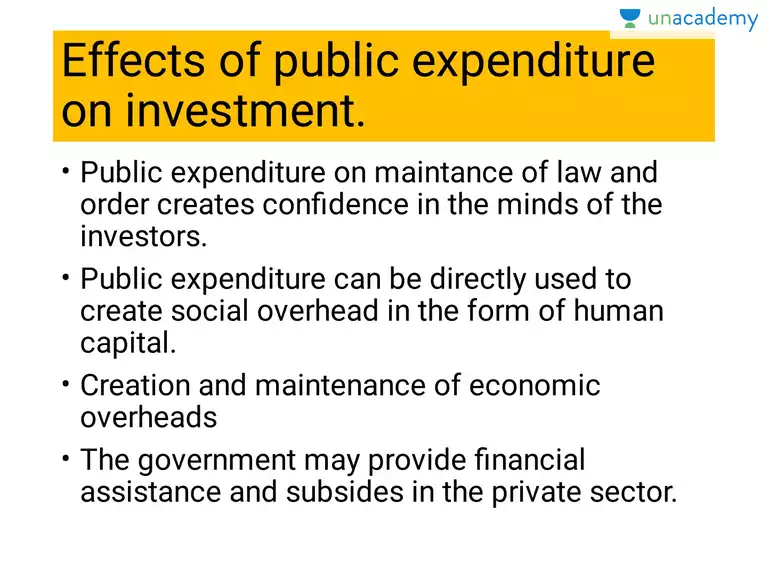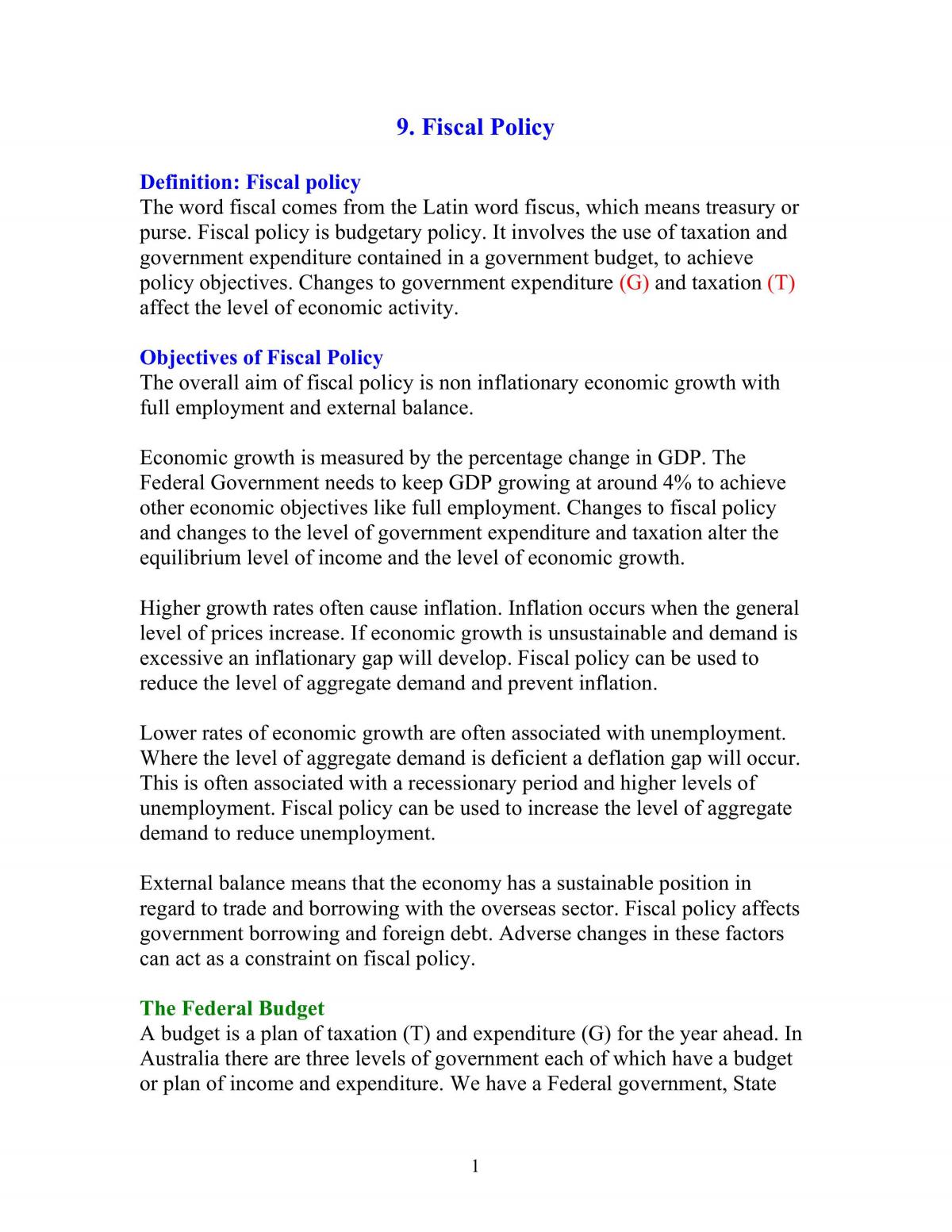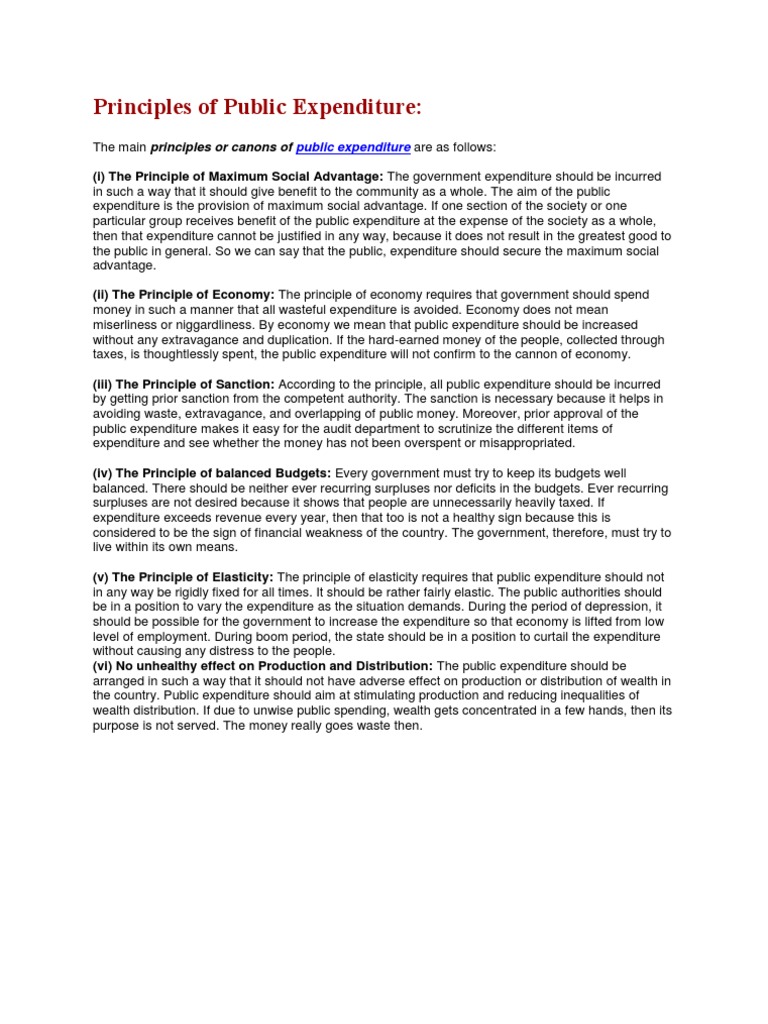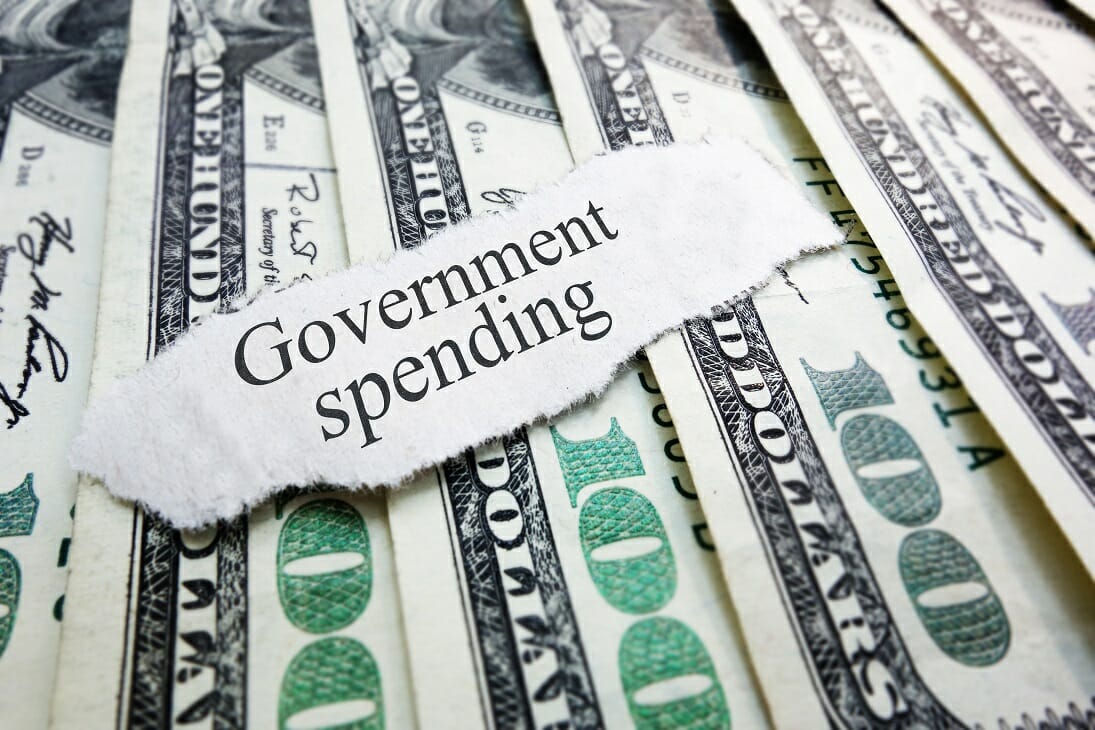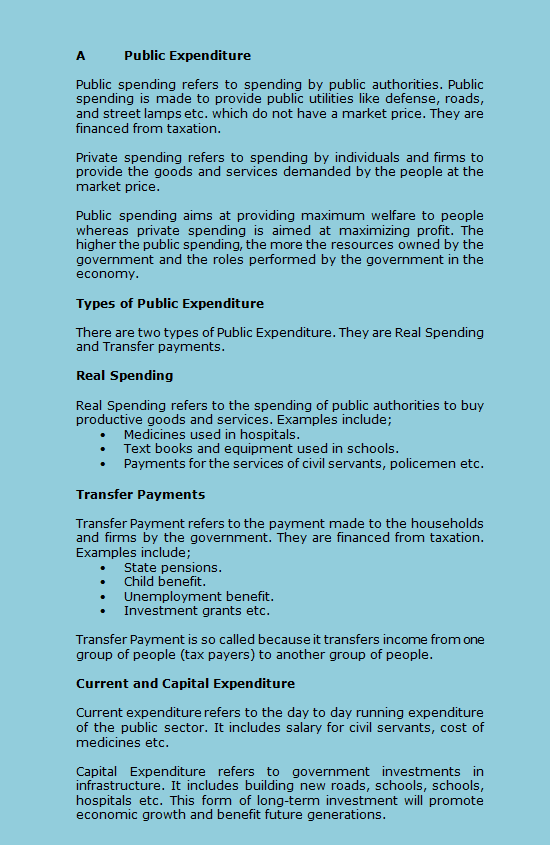Public expenditure refers to the money that governments at various levels (federal, state, and local) spend on goods and services for the benefit of the general public. It includes the purchase of physical goods, such as infrastructure and equipment, as well as the provision of intangible services, such as education and healthcare.
Public expenditure plays a crucial role in the functioning of modern societies, as it helps to address various social and economic issues. For example, investments in education can improve the skills and knowledge of the workforce, leading to higher productivity and economic growth. Similarly, investments in healthcare can improve the health and well-being of citizens, leading to lower healthcare costs and a more productive population.
There are different types of public expenditure, each with its own set of goals and objectives. For instance, there is current expenditure, which refers to the spending on goods and services that are consumed in the current year, such as salaries, pensions, and welfare benefits. On the other hand, capital expenditure refers to the spending on long-term assets, such as infrastructure and equipment, which are expected to generate benefits over several years.
Public expenditure is typically financed through taxes, borrowing, and other revenue sources. Governments use various tools to manage their expenditure, such as budgeting, forecasting, and performance monitoring, to ensure that resources are allocated efficiently and effectively.
However, public expenditure can also have negative consequences if it is not managed properly. For instance, excessive spending can lead to budget deficits and debt, which can have negative impacts on the economy. It is therefore important for governments to carefully balance the benefits of public expenditure with the costs and ensure that it is sustainable in the long run.
In conclusion, public expenditure refers to the money that governments spend on goods and services for the benefit of the general public. It plays a crucial role in addressing various social and economic issues, but it must be managed carefully to ensure that it is sustainable in the long run.
